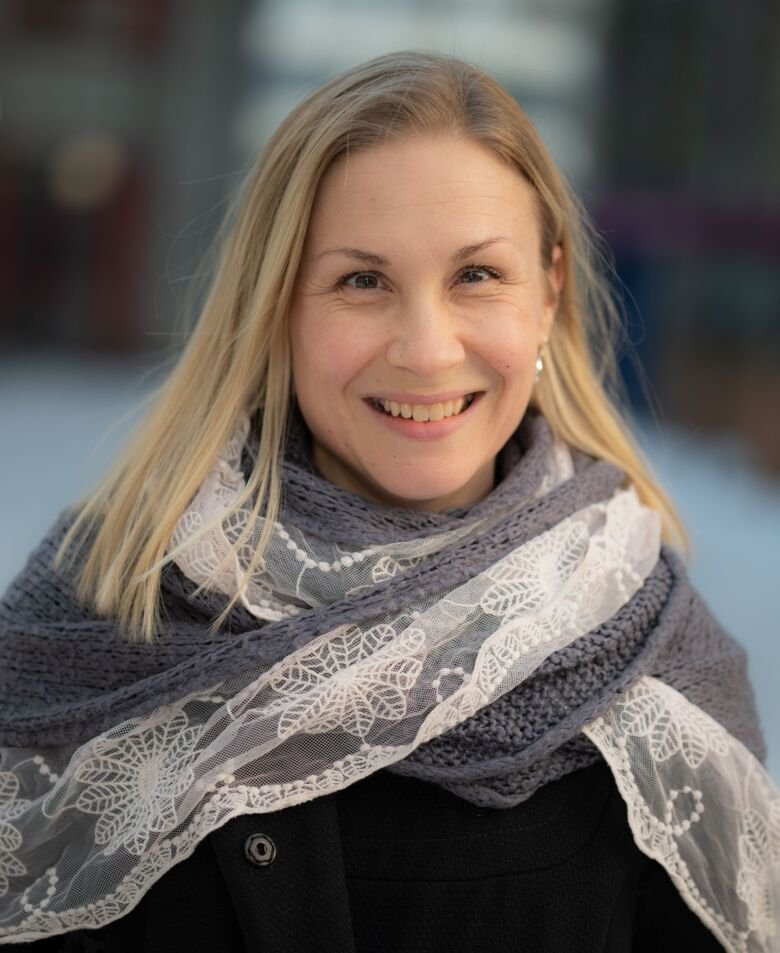Pauliina Damdimopoulou receives ERC Consolidator Grant for research on women's fertility

KI-researcher Pauliina Damdimopoulou has been awarded a EUR 2 million ERC Consolidator Grant (European Research Council) for the SAFER project (SAfeguarding female FERtility-development of human-relevant in vitro tools for reproductive toxicity). The research will investigate the impact of commonly occurring environmental chemical contaminants on women's reproductive health. The grant is awarded under Horizon Europe, the EU's programme for research and innovation.
Tell us about the research project SAFER.

"SAFER addresses the critical societal challenge of chemical pollution and women's fertility. It will investigate in detail the impact of commonly occurring environmental chemical contaminants on ovaries and early embryos, using advanced tissue and cell culture systems. This knowledge will be developed into new assays that can predict chemical toxicity toward reproduction", says Pauliina Damdimopoulou, associate professor at the Department of Clinical Science, Intervention and Technology, Karolinska Institutet.
"A girl is born with all the eggs she will ever have, and the number and quality of these eggs decline irreversibly with age. This makes women's fertility limited from the start. Multiple studies suggest that exposure to environmental chemicals can negatively affect fertility, leading to increased difficulties in achieving pregnancy and having children."
"This is concerning because the use of chemicals in society is increasing, and we currently lack efficient tools to test their possible impacts on women's fertility. This is due to a lack of molecular-level understanding of how human ovaries and embryos are affected by chemicals. SAFER aims to change this."
"SAFER will use human ovarian tissue samples and stem cell-derived embryo models to fill this knowledge gap. It will utilize selected chemicals as model compounds in the studies; these chemicals are present in nearly every woman, and our previous studies have shown that their levels correlate with reduced fertility. SAFER will detail how these chemicals affect ovaries and embryos."
"To make a difference, SAFER will develop the obtained molecular knowledge into novel assays that can be used to predict the reproductive toxicity of chemicals currently on the market, as well as new ones entering the market every year."
"Chemical safety testing follows internationally accepted guideline assays. Currently, the only assays available for testing reproductive toxicity in women are based on rats. There are many issues with these assays."
"For example, rats are much more fertile compared to women, the endpoints measured in the tests are not relevant to humans, and the experiments are expensive and time-consuming. As a result, only chemicals with very high production volumes are tested. Additionally, there is an ambition to phase out animal experimentation in Europe."
"It is clear that we urgently need to develop new methods to assess reproductive toxicity of chemicals in women, which is what SAFER will do."
Describe the application process.
"Writing any funding application takes time, and ERC grants demand even more attention, time, and thinking. My continuous involvement in large collaborative European research grants since my PhD has accustomed me to European project applications. This greatly helped me in finding the appropriate voice and layout for SAFER. Additionally, I have wonderful friends and colleagues who have previously received ERC grants. They shared their experiences and applications, which was an invaluable resource to me."
"I also had a few trusted close colleagues who were willing to help by reading and commenting on the proposal. Their perspectives opened my eyes to aspects I had overlooked, and considerations I hadn’t realized were important."
"When I received the invitation to Step 2, the process began anew. I met in person with several researchers who had recently received ERC consolidator grants, over coffee, to gain insights into the process."
"I seized every available training opportunity (for example by the Swedish Research Council and KI) to polish my presentation and practiced with a diverse range of audiences. This included researchers both within and outside my field. Since ERC panels are broad, and the panel interviewing me might not have in-depth knowledge of female fertility, reproductive toxicity, or chemical safety assessment, it became crucial to practice my talk with people outside my field."
"This application process was, without doubt, the most resource-intensive and demanding one I have encountered so far. Standing here today, I am glad that I went all-in."
What does the grant mean to you?
"Receiving an ERC grant is a monumental achievement for anyone. It represents not only the opportunity to pursue your visions with substantial funding for five years but also serves as a quality assessment of your research. It signifies that your questions, visions, and ideas are relevant and highly regarded by the broader research community, and deemed of such importance that they warrant priority".
"Passing this 'quality control' is a significant milestone in my career, one that will remain a top merit on my CV forever. Beyond this, there is a deeper significance in the recognition that the topic of women's health in a chemically altered environment is worthy of ERC funding. My research passion lies in chemicals and fertility in women, a field that has been overlooked and understudied, and one that is not the easiest to secure funding for."
"Convincing the reviewers and the ERC of the importance and urgency of this topic, advocating for immediate action, represents my greatest accomplishment. Now, I have the chance to make a meaningful difference and contribute towards realizing the Swedish and European visions of a chemically safe environment."
What do you expect to have achieved after the project’s five years?
"I expect to have gained critical knowledge of the molecular pathways that can be disrupted by environmental chemicals in human ovaries and embryos. I expect to have developed novel and relevant cell systems that are suitable for large-scale screening and prioritization of chemicals."
"Furthermore, I hope to have captured the attention of other researchers, organizations, and authorities, enabling the project's results to be further utilized. It's essential that the tools developed become accessible to the research community and relevant stakeholders at large."
"Therefore, I expect to have a clear exploitation strategy in place by the project's end. The outcomes of SAFER will not be truly impactful if they remain confined to my laboratory", says Pauliina Damdimopoulou.
ERC Consolidator Grants 2023
Out of 2,130 candidates, the European Research Council (ERC) has selected 308 researchers for this year’s Consolidator Grants. The grants will support scientific projects spanning all disciplines of research from engineering to life sciences to humanities.
The funding will support excellent scientists and scholars at the career stage where they may still be consolidating their own independent research teams to pursue their most promising scientific ideas. Worth in total €627 million, the grants are part of the EU’s Horizon Europe programme.
